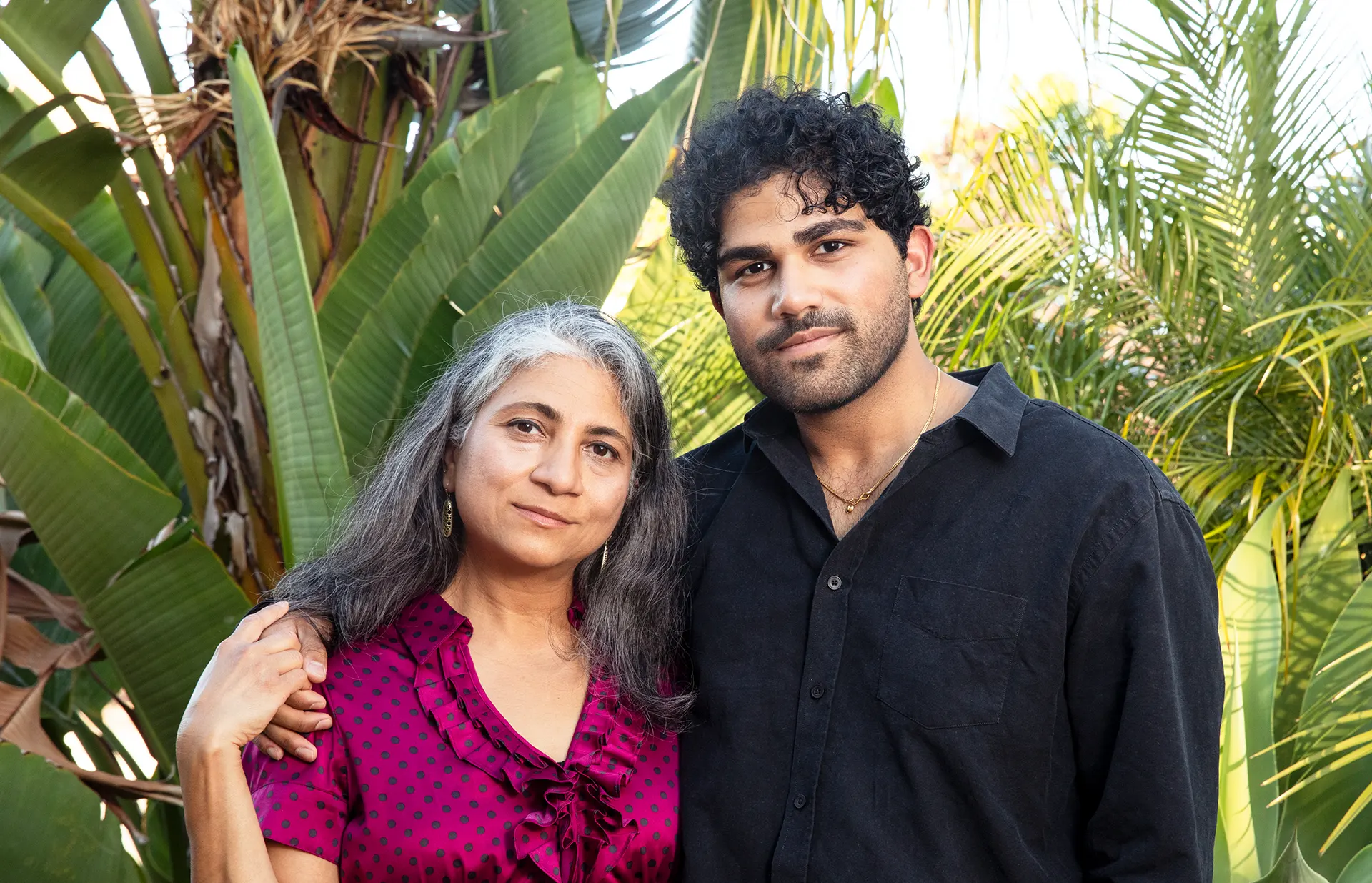Ode to a Medical Student and Poet

From left, Aysha Kunju, M.D., and Aidan Kunju.
VOICES*
VOICES*
VOICES*
VOICES*
VOICES*
VOICES*
VOICES*
VOICES*
VOICES*
VOICES*
VOICES*
VOICES*
VOICES*
VOICES*
VOICES*
VOICES*
Writing poetry and practicing medicine may be different disciplines, but they’ve lyrically merged in the life of Aidan Kunju, a second-year student at the Miller School. In the midst of his academic rigors, he’s found a creative outlet that requires language instead of science.
In Kunju’s mind, the two are not mutually exclusive. “Poetry demands a precision that corresponds with the way a physician must be a master detective who reads between the lines and discerns meaning in what isn’t seen,” he said.
Growing up in Texas and California, Kunju enjoyed other forms of creative expression besides writing, including painting. “People who go into medicine are stereotyped as math and science nerds,” he noted, “but I was a science and English nerd. I liked putting words together in unique ways.”
Kunju, the child of Indian immigrants, did just that with his poem Lunch Break, Brave Face.
The poem comprises 15 lines in four stanzas. Each line has a break in the middle, giving the poem a right side and a left side. The poem captures a moment in a day during the pandemic lockdown, when Kunju’s internist mother, Aysha Kunju, M.D., comes downstairs for lunch after seeing patients on Zoom. She has multiple sclerosis but is carrying on with her work.
So unique were his words that the poem was one of two first-prize winners of the 2023 Paul Kalanithi Writing Award, bestowed by Stanford University’s School of Medicine for works that address patients and providers facing chronic or life-limiting illness. The ode was published this past summer in Anastomosis, Stanford Medicine’s humanities and literary journal.
Growing up with a physician in the family introduced Kunju to the significant role doctors play in their patients’ lives. “You see your mom come home during the holidays with cards from her patients and little gifts from their gardens and you say, ‘Wow,’” he said.
Through her, Kunju came to better understand the patient perspective and what it means to have an illness, which he expresses in his poetry. “Dealing with the illness of a family member has a lot of powerful emotions associated with it,” he said. “It can be overwhelming, and poetry is a way to get the highlights and emphasize what you want to say, to get a clear message across.” ![]()
Lunch Break, Brave Face
My mother
began seeing patients only from home
she was optimistic
she comes downstairs during her
break to eat lunch
and tend to her african violets
flourishing in the may sunlight
from the kitchen window
she asks us- rajma for dinner?
she socks the little read beans
before walking
back upstairs to respond
to the new messages
one patient at a time
her inbox fills
immunocompromised from treatments
when the pandemic began
I was scared about the spots found in her brain
some old, some new
quick
swallow the vitamins
they grow so fast…
it beats into the house
and warms it, making her symptoms flare
while I get her a fresh ice pack and lemon
in water
steadily
typing with numb fingers
she progresses
one day at a time
and her vigor drains.
Kunju believes the precision demanded by poetry corresponds with a physician discerning meaning in what isn’t seen.
University of Miami Medicine
FALL 2025


